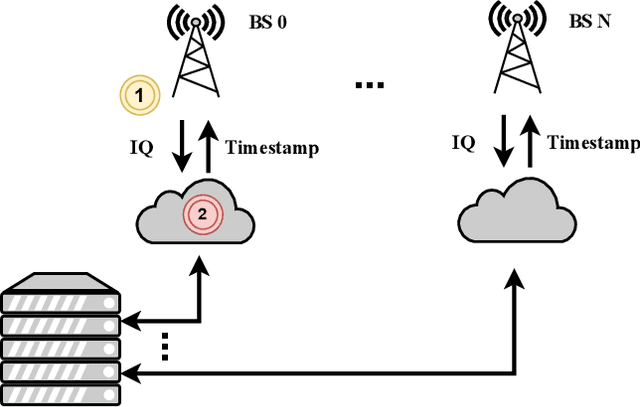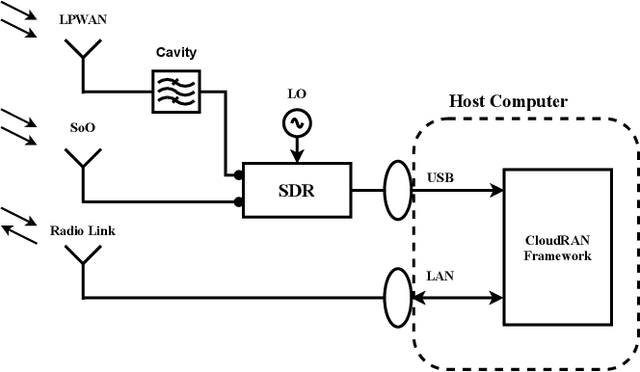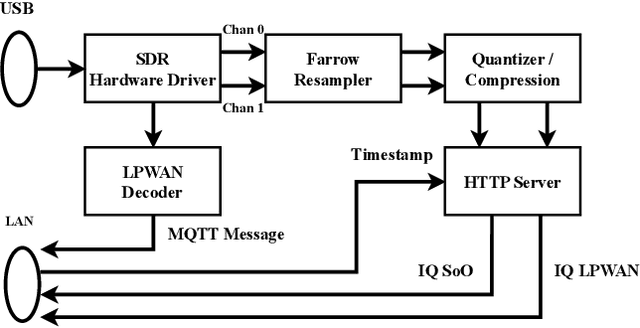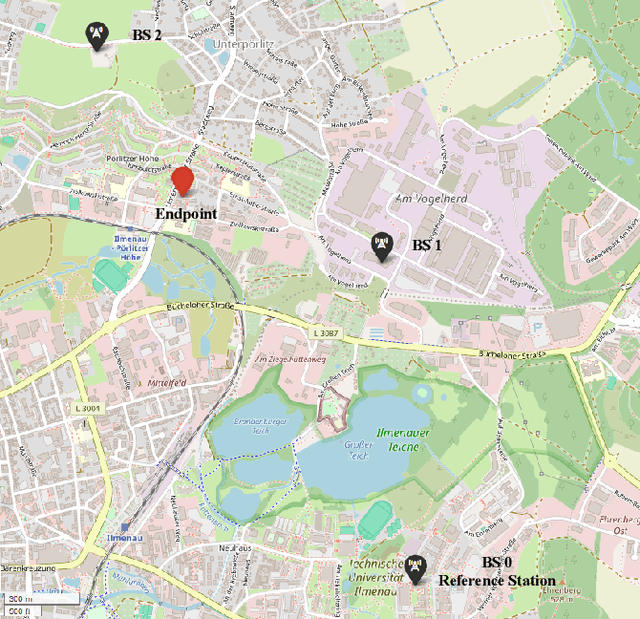IoT Cloud RAN Testbed for Ultra-Precise TDoA-based Localization in LPWANs
Paper and Code
Jan 21, 2024



There have been many research efforts in the area of localization in recent years. Especially within the Internet of Things (IoT), the knowledge of position information for individual components is of great interest, for example, in asset tracking, to name just one. However, many of these use cases require a high energy efficiency, making a GNSS-based approach infeasible. One promising candidate can be found in Low Power Wide Area Networks (LPWAN), which enable battery lifetimes of up to 20 years. However, no gold standard for localization exists for these types of networks. Our work proposes a testbed architecture that allows the investigation and development of localization algorithms within LPWA Networks. The concept is built on a Cloud Radio Access Network (CRAN) architecture that allows the streaming of IQ from remote base stations to a central processing unit. Furthermore, the architecture is expanded by a synchronization concept based on Signals of Opportunity (SoO) to enable the testbed for runtime-based positioning. Therefore, we propose a hardware concept consisting of antennas and a low-cost off-the-shelf software-defined radio (SDR)-based frontend architecture and a software framework using a hypertext transfer protocol (HTTP)-based server and client architecture. The proposed system is installed in an urban environment. Initial measurements are conducted, where it can be shown that the proposed architecture can be used for highly precise Time Difference of Arrival (TDoA) measurements, offering the possibility of time synchronization down to approximately 200 ps and frequency synchronization of 3 mHz.
 Add to Chrome
Add to Chrome Add to Firefox
Add to Firefox Add to Edge
Add to Edge